12. The Sound Barrier (1952)
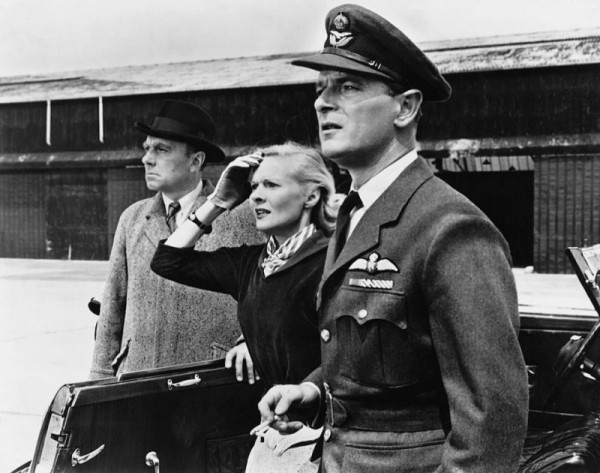
As much an insight into Lean’s explorer spirit, as it is into his surprising knack for making films that were similar to documentaries in look, feel, structure and narrative, “The Sound Barrier” is not for those do not share Lean’s interest for technology and man’s ambition to get ahead no matter the cost.
Focusing on a strained relationship between a father and a daughter that grounds this otherwise messy film, it is a fictional account of the aircraft designers and test pilots to break the “sound barrier”, a term that came into use during the World War II and by the 1950s many pilots were able to break the barrier repeatedly.
The tone of the film is far less cinematic than Lean’s later work and the potential for greatness is not fully exploited. But it is still one of the most entertaining films from his oeuvre, with a memorable performance by Ralph Richardson as a father longing to abbreviate the distance between him and his daughter.
11. Oliver Twist (1948)
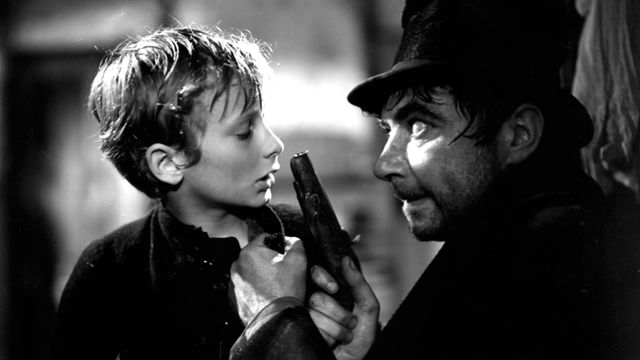
More suited for a classroom discussion of the book, than for a cinephile analysis, Lean’s “Oliver Twist” has all the tropes of a film of that time, but remains one of the most faithful film adaptations of a Dickens book, with nearly perfect casting and an impressionistic background score.
The story, simply put, couldn’t more well-known. A young boy, whose mother died giving birth to him, is raised in a parish workhouse where he suffers mistreatment and indifference at the hands of the workhouse officials which leads to him one day running away and his life’s adventures are then chronicled in ways that are intended to be lessons about living in the real world.
Lean attempts to lend a heightened sense of drama to the fable, succeeding in parts, thanks largely to his cast. While his portrayal raised quite some controversy at the time, Alec Guinness truly shines as a scary, yet mysterious Fagin and has an alluring, romanticized screen presence that is a testament to his diversity.
10. In Which We Serve (1942)
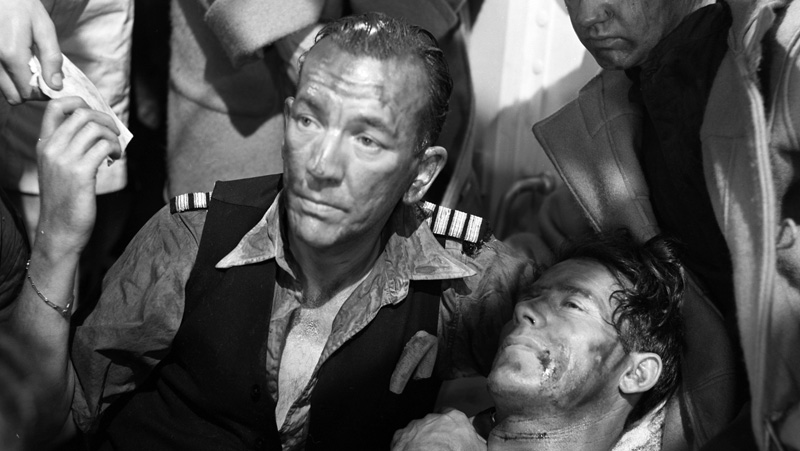
The first feature film on which Lean worked as a director was one where he shares the credit with Noël Coward, because Lean only directed the film’s action sequences. Although the film is a moving and larger-than-life retelling of the adventures of Lord Louis Mountbatten, its true strengths lie in its rendering of the brutalities of war and the incisive perspective with which it portrayed a historical event that was at the time, ongoing.
The film recounts the lives of the men onboard the HMS Kelly when it is attacked by German bombers and they all have to flee for their safety. Told in flashbacks, “In Which We Serve” was an important film that was intended to inform, console and embolden the men and women at home whose loved ones were risking their lives for their nation.
But that also makes the film largely a propaganda piece for the British Government, and while Lean’s personality is largely missing from this one, it nonetheless is a riveting experience to watch and is a patriotic triumph with unreserved sentiment.
9. Great Expectations (1946)
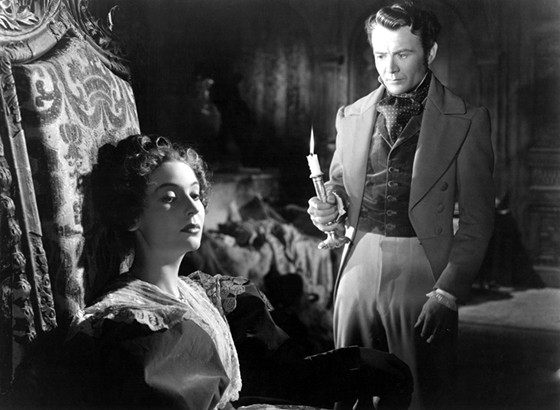
First of the two Dickens adaptations Lean worked on, “Great Expectations” is a much more accomplished film, thanks largely to the book being far more nuanced and evocative than “Oliver Twist”. The film doesn’t follow the novel in its entirety and many central issues of the book are left out, but the all the qualities that make the book so gorgeously atmospheric are retained.
It is the story of a poor boy named Pip who falls in love with a cold, unfeeling, cruel but handsome girl Estella, daughter to a Miss Havisham, a wealthy woman who wants Pip to provide her with company. They go their own ways after a time and the once coarse, unruly boy is turned into a gentleman once an anonymous benefactor helps in his education. He stumbles upon Estella again and his fortunes are related to us in pure Dickensian fashion.
The aesthetic and tone of the film reaffirm the first-person structure of the book and Lean creates a slow-burning, intensely brittle film that benefits from sumptuous lighting, idyllic casting and indelible visuals of the vast and bleak emptiness around Miss Havisham’s house, whose contrast with the plucky young Pip works as perfect layering for the narrative.
8. Summertime (1955)
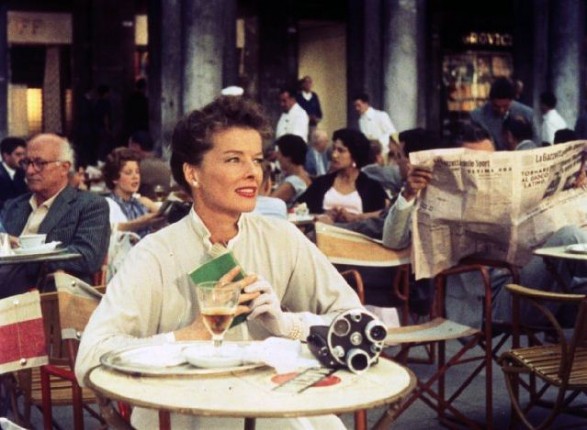
After years of making films set in his homeland, Lean now made a step towards international cinema with “Summertime”, a film partly financed by an American producer, featuring an American protagonist and filmed entirely in Venice. It would lay ground for Lean’s aptitude for incorporating location as a character in the film and an imperative part of the experience, highly evident in his work that followed.
Katherine Hepburn plays the central character Jane Hudson, a middle-aged school secretary who is on a long overdue vacation in Italy where she is suddenly saddened by her solitude before she meets a charming native called Renato and begins to haplessly fall in love with him. He tells him to embrace her present and let all her inhibitions go, and for the first time in her life, Jane has no qualms in doing so, even if all of it feels perennially transient.
Hepburn’s performance has an aura of such genuine emotion enveloped around her that it instantly lights up the screen. Her chemistry with Rossano Brazzi is irresistible and quietly profound. Lean’s coloring has possibly never been better than in this one: Venice’s embellishments are rendered with palpable liveliness. The film is no “Brief Encounter”, but a worthy companion piece to that classic.
7. Hobson’s Choice (1954)

David Lean had a peculiar sense of timing. His editing background explains his prowess in sharp, dexterous, witty storytelling but his observational abilities propel a lucid imagining of reality that was as entertaining as it was incessantly fascinating. Based on Harold Brighouse’s play of the same name, “Hobson’s Choice” was Lean’s shining moment in film comedy.
The plot features an alcoholic widower Henry Hobson who has three daughters who work in his shop and want to be free of his overbearing presence as soon as possible. While his younger daughters’ choices are unobjectionable to him, he refuses to marry his eldest, Mary, off to his poor employee Willie, who is strong-armed by the clever Mary into an engagement.
This tale of human blemishes is vividly entertaining and provides Lean with the opportunity to exploit the wondrous talent of veteran Charles Laughton who designs one of his best characterizations as the unlikable Hobson, while is snappy editing produces a biting document of all-too real absurdities.